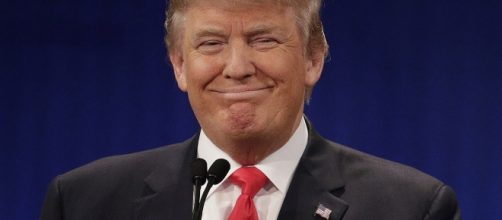President Donald Trump tweeted a message offering help to Charlie Gard, the British infant who is suffering from a rare genetic disorder and who the UK National Health Service prevent from undergoing an experimental treatment. An NBC News correspondent based in London suggested that the president has sinister, political motives in giving the offer. The world awaited with baited breath for Trump’s reaction on Twitter.
What Trump did
Trump tweeted early Monday on July 3: "If we can help little #CharlieGard, as per our friends in the U.K. and the Pope, we would be delighted to do so." He was referring to the infant named Charlie Gard who is suffering from a genetic disorder that is weakening his muscles and causing brain damage.
No known cure exists, but a doctor in the United States has offered to try an experimental treatment that may or may not provide an adequate cure. Even though Charlie’s parents have raised the money to take their son to America for the treatment, doctors working for Britain’s socialist National Health Service have refused permission for the baby to go, decreeing that he should be taken off the respirator and allowed to die instead.
The parents have been turned away throughout the British court system and a human rights tribunal in France. Currently, Charlie’s execution date has been delayed so that his parents and relatives will have more time with him. The parents have been refused permission even to bring their son home to die.
As a result, international outrage has been growing over the spectacle of a government run, single-payer health care system demonstrating what many see as unimaginable cruelty.
What NBC’s Matt Bradley said
NBC’s correspondent in London Matt Bradley weighed in on the controversy. He suggested that there are two ways one can look at Trump’s offer to help.
The first way is that he genuinely wants to help baby Charlie and his parents. However, since Bradley apparently considers this unlikely, he suggested that the real reason is that he intends to reap some political advantage from the situation.
Charlie Gard's tragic story carries the possibilities for drama. If the British government, under international pressure, decided to relent and let Charlie and his parents go to America and, let us say, that the experimental treatment had some beneficial effect, the photo of the parents profusely thanking President Trump at the White House is something that political operatives would be happy of. The embarrassment that the British National Health Service, on the other hand, would suffer would be profound and long lasting.


